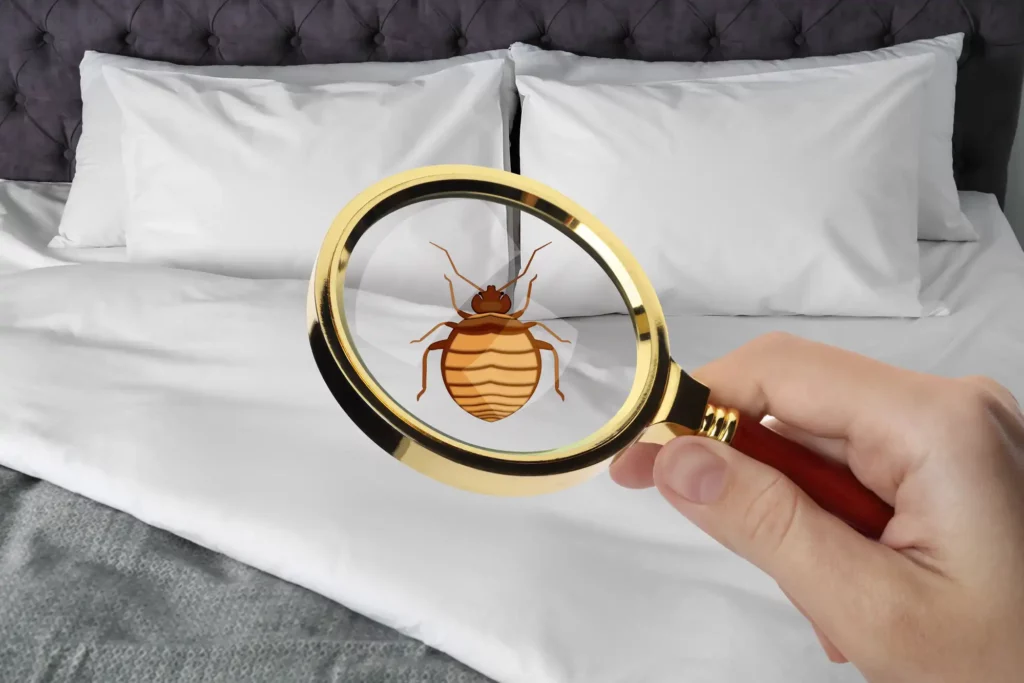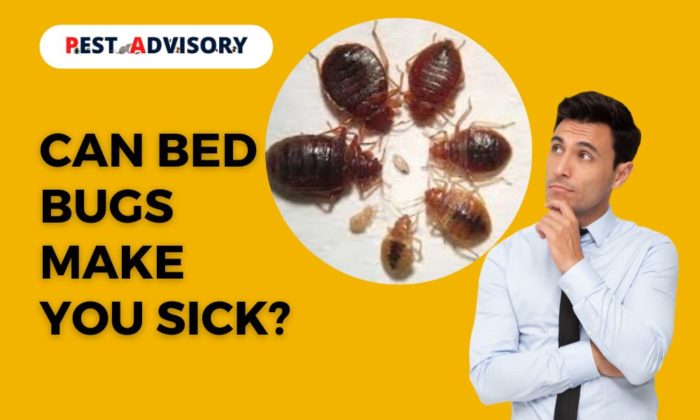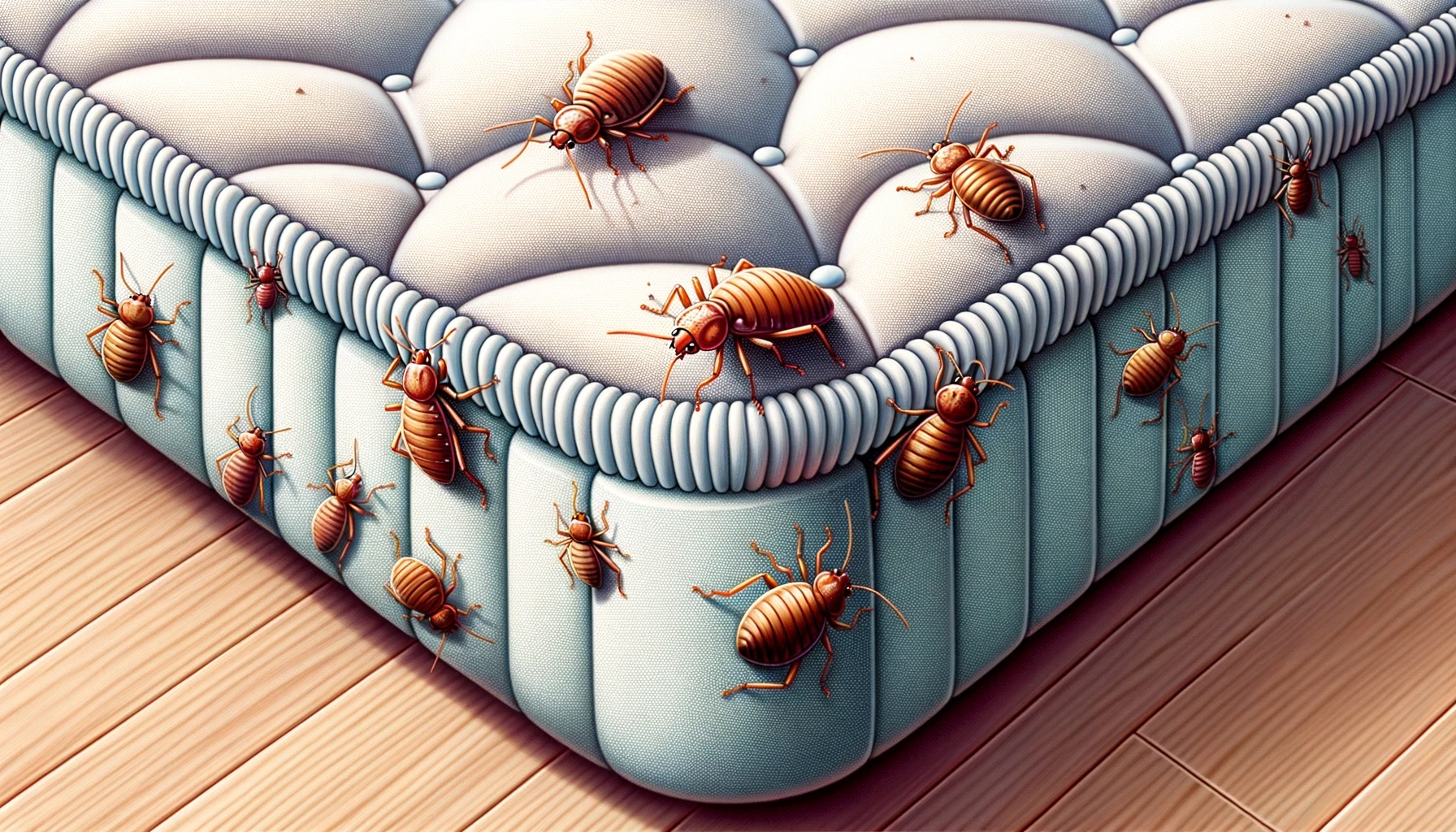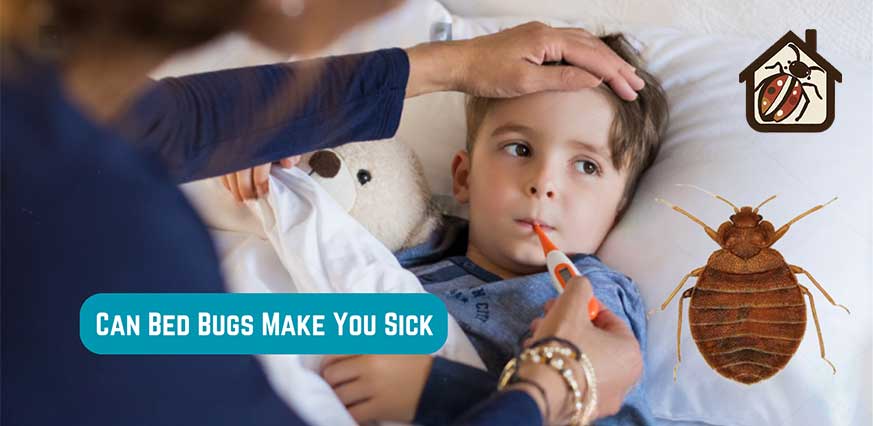Can Bed Bugs Actually Make You Sick? The Surprising Truth
Bed bugs. The very words can send shivers down your spine, conjuring images of itchy bites, sleepless nights, and a pervasive feeling of unease. We know they feed on blood, but the question remains: can these tiny, nocturnal vampires actually make you sick? While the answer isn’t as straightforward as a simple “yes” or “no,” understanding the health implications of a bed bug infestation is crucial. This article delves into the surprising truth about the health risks associated with bed bugs, exploring potential illnesses, psychological impacts, and how to protect yourself.
The Bite and Beyond: Immediate Reactions to Bed Bug Bites
The most immediate and noticeable consequence of bed bug activity is, of course, the bites themselves. These bites, often appearing as small, red, itchy welts, are the body’s reaction to the bed bug’s saliva. This saliva contains anticoagulants and anesthetics that allow the bed bug to feed undetected.
- Common Reactions:
- Itching: This is the most prevalent symptom, ranging from mild to intense.
- Redness: The bites often appear as raised, red bumps or welts.
- Swelling: Some individuals may experience swelling around the bite site.
- Irritation: The constant itching can lead to skin irritation and scratching.
While these reactions are uncomfortable, they are typically not indicative of a serious illness. However, excessive scratching can break the skin, opening the door to secondary infections.
Potential Health Risks: Beyond the Itch
While bed bugs are not known to transmit diseases like mosquitoes or ticks, their presence can contribute to various health concerns.
Secondary Skin Infections: As mentioned, scratching the bites can lead to:
- Bacterial Infections: Staphylococcus or Streptococcus infections are possible, leading to impetigo or cellulitis.
- Fungal Infections: These can develop in areas with broken skin.
Allergic Reactions: Some individuals are highly sensitive to bed bug bites and may experience:
- Severe Itching and Inflammation: This can be more widespread than the localized bite.
- Hives: Raised, itchy welts that can appear anywhere on the body.
- Anaphylaxis (Rare): In extremely rare cases, severe allergic reactions can occur, requiring immediate medical attention.
Anemia (In Severe Infestations): In rare instances, a severe and prolonged infestation, particularly in vulnerable populations like infants or the elderly, can lead to:
- Iron-Deficiency Anemia: This occurs due to the constant blood loss from bed bug feeding. Symptoms include fatigue, weakness, and pale skin.
The Psychological Toll: Anxiety, Stress, and Sleep Disruption
The emotional and psychological impact of a bed bug infestation can be significant and often underestimated.
Anxiety and Stress: The knowledge of being bitten while sleeping, the constant itching, and the difficulty in eradicating the pests can lead to:
- Increased Anxiety: Worrying about bites, the spread of the infestation, and the cost of treatment.
- Stress and Depression: Feelings of helplessness, shame, and isolation.
Sleep Disruption: The fear of being bitten, the itching, and the general discomfort can:
- Lead to Insomnia: Difficulty falling asleep, staying asleep, or both.
- Cause Fatigue and Reduced Productivity: This can impact daily life and work performance.
Paranoia: In some cases, the persistent feeling of being bitten can lead to:
- Delusions of Infestation: Even after the infestation has been successfully treated, individuals may continue to believe they are being bitten.
Prevention and Treatment: Protecting Your Health
The best defense against the health risks associated with bed bugs is to prevent an infestation in the first place.
Preventative Measures:
- Inspect Regularly: Check mattresses, box springs, headboards, and furniture for signs of bed bugs, especially when traveling or bringing used furniture into your home.
- Use Protective Covers: Encase mattresses and box springs in bed bug-proof covers.
- Reduce Clutter: Bed bugs thrive in cluttered environments.
- Be Cautious When Traveling: Inspect hotel rooms and other accommodations for signs of bed bugs.
Treatment: If you suspect a bed bug infestation, it’s crucial to take action promptly.
- Professional Pest Control: The most effective way to eliminate bed bugs is to hire a qualified pest control professional.
- Heat Treatment: This method uses high temperatures to kill bed bugs and their eggs.
- Chemical Treatments: Insecticides can be used to eliminate the pests, but it’s important to follow the instructions carefully and prioritize safety.
Conclusion: A Matter of More Than Just Bites
While bed bugs are not direct vectors of disease in the same way as mosquitoes, their presence can significantly impact your health and well-being. From the immediate discomfort of bites and the potential for secondary infections to the psychological toll of anxiety, stress, and sleep disruption, the effects of a bed bug infestation can be far-reaching. Proactive prevention, early detection, and professional treatment are key to minimizing these risks and protecting your health. Remember, if you suspect a bed bug problem, don’t hesitate to seek professional help.
Frequently Asked Questions (FAQs)
1. Can bed bugs transmit diseases?
While bed bugs are not known to transmit diseases to humans, they can cause other health issues like skin infections, allergic reactions, and anemia in severe cases.
2. How do I know if I have bed bug bites?
Bed bug bites often appear as small, red, itchy welts, typically in a line or cluster. They are often found on exposed skin areas like the arms, legs, and face. However, the appearance of bites can vary.
3. What should I do if I find bed bugs?
Contact a qualified pest control professional immediately. They can inspect your home, confirm the infestation, and recommend an effective treatment plan.
4. Can bed bugs live in my clothes?
Yes, bed bugs can hide in clothing, especially in areas like seams and folds. If you suspect bed bugs, wash and dry your clothes on high heat to kill them.




